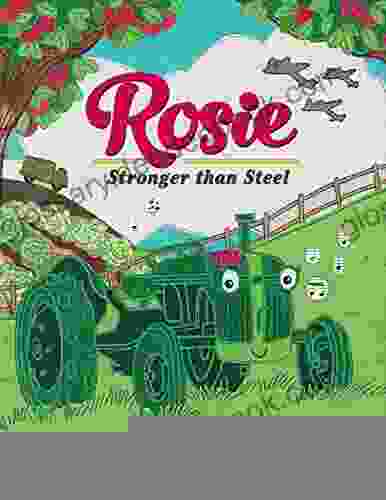Blood On Our Hands: A Comprehensive Guide to the Horrific Atrocities Committed by Humans

: The Dark Side of Human Nature
Throughout the annals of history, humanity has been marred by countless acts of unspeakable violence and cruelty. From the earliest recorded instances of mass murder to the horrors of the Holocaust and the Rwandan genocide, humans have inflicted immeasurable suffering upon one another. These atrocities are not isolated incidents but a chilling testament to the dark side of human nature.
4.7 out of 5
| Language | : | English |
| File size | : | 925 KB |
| Text-to-Speech | : | Enabled |
| Screen Reader | : | Supported |
| Enhanced typesetting | : | Enabled |
| Word Wise | : | Enabled |
| Print length | : | 336 pages |
| Lending | : | Enabled |
In this article, we delve into the depths of human violence, examining its various forms, causes, and consequences. We will explore the psychological, social, and environmental factors that contribute to these horrific acts and examine their impact on individuals, communities, and societies. By shedding light on the horrors of human nature, we aim to raise awareness, foster empathy, and promote dialogue on how to prevent and address such atrocities in the future.
Forms of Atrocities: A Taxonomy of Violence
Human violence manifests itself in a myriad of forms, ranging from individual acts of murder to large-scale atrocities such as genocide. Some of the most common forms of atrocities include:
- War crimes: Grave breaches of the Geneva Conventions, including willful killing, torture, or inhuman treatment of prisoners of war or civilians.
- Crimes against humanity: Widespread or systematic attacks against a civilian population, including murder, enslavement, deportation, or persecution on political, racial, or religious grounds.
- Genocide: The intentional destruction, in whole or in part, of a national, ethnic, racial, or religious group.
- Mass murder: The intentional killing of a large number of people in a single incident or over a period of time.
- Torture: The infliction of severe pain or suffering, whether physical or mental, to extract information or intimidate victims.
- Human rights violations: Any act or omission that violates the fundamental rights of individuals, such as arbitrary arrest, detention, or denial of fair trial.
These forms of atrocities are not mutually exclusive and often overlap in complex ways. For example, war crimes may be committed in the context of genocide, and mass murder may involve torture and other forms of human rights violations.
Causes of Atrocities: A Tangled Web of Factors
The causes of atrocities are complex and multifaceted, involving a combination of psychological, social, and environmental factors. Some of the key factors that contribute to these horrific acts include:
- Prejudice and discrimination: Negative attitudes and beliefs towards particular groups of people, based on their race, ethnicity, religion, or other characteristics. Prejudice can foster a climate of intolerance and hatred, which can escalate into violence.
- Political ideology: Extreme ideologies, such as nationalism or fascism, can promote violence and hatred towards perceived enemies or outsiders.
- Economic inequality: Socioeconomic disparities and poverty can create feelings of resentment and desperation, which can lead to violence.
- Historical grievances: Past injustices or conflicts can create a sense of victimhood and a desire for revenge, which can fuel atrocities.
- Environmental stressors: Natural disasters, climate change, and resource scarcity can contribute to social and economic instability, which can increase the risk of violence.
It is important to note that no single factor is sufficient to cause an atrocity. Rather, it is the interplay of multiple factors that creates a breeding ground for violence.
Consequences of Atrocities: A Legacy of Devastation
The consequences of atrocities are profound and long-lasting, affecting individuals, communities, and societies as a whole. Some of the most devastating consequences include:
- Loss of life and physical injury: Atrocities result in the deaths of countless people and cause severe physical and mental trauma to survivors.
- Social and economic disruption: Atrocities can destroy communities and economies, leading to displacement, poverty, and social instability.
- Psychological trauma: Victims of atrocities often suffer from lifelong psychological trauma, including post-traumatic stress disorder (PTSD),depression, and anxiety.
- Erosion of trust and social cohesion: Atrocities undermine trust between communities and within societies, making it difficult to rebuild and reconcile.
- International condemnation and sanctions: Atrocities can lead to international condemnation and sanctions, which can further isolate and destabilize the societies responsible.
The consequences of atrocities extend far beyond the immediate victims and perpetrators. They can create a climate of fear and insecurity, stunt economic development, and sow the seeds for future conflicts.
Ethical Implications: Grappling with the Darkness
The commission of atrocities raises profound ethical questions about the nature of human nature, the limits of state power, and the responsibility of individuals to prevent and respond to these horrific acts.
One of the key ethical challenges is to understand the motivations of perpetrators. Why do people commit such unspeakable atrocities? Psychologists and sociologists have identified a number of psychological factors that may contribute to atrocity perpetration, including obedience to authority, dehumanization of victims, and the desire for power and control.
Another ethical challenge is to determine the appropriate response to atrocities. Should the perpetrators be punished or rehabilitated? How can communities heal from the wounds of violence and rebuild trust? These questions are complex and require careful consideration.
Preventing Atrocities: A Call to Action
Preventing atrocities is a moral imperative and a complex challenge. It requires a multi-pronged approach that addresses the root causes of violence and promotes peace, tolerance, and understanding.
Some key strategies for preventing atrocities include:
- Education and awareness: Educating people about the history of atrocities, their causes and consequences, and the importance of human rights can help to prevent prejudice and discrimination.
- Promoting tolerance and diversity: Fostering tolerance and respect for different cultures, religions, and ethnicities can help to break down barriers and promote understanding.
- Strengthening institutions: Building strong and accountable institutions, such as the judiciary and law enforcement, can help to prevent atrocities and provide justice for victims.
- Early warning systems: Establishing early warning systems to identify and respond to potential atrocities can help to prevent them from escalating.
- International cooperation: Cooperation between nations is essential for preventing and responding to atrocities. This includes sharing information, providing aid, and taking collective action to stop violence.
Preventing atrocities is not an easy task, but it is essential for building a more just and peaceful world. By working together, we can create a world where the horrors of the past are not repeated.
: Breaking the Cycle of Violence
Blood On Our Hands is a sobering reminder of the darkness that humans are capable of inflicting upon one another. Atrocities are not a relic of the past but continue to occur in our world today. By understanding the causes and consequences of these horrific acts, and by working together to prevent them, we can break the cycle of violence and build a more just and compassionate world.
The fight against atrocities is an ongoing one. It requires vigilance, empathy, and a commitment to human rights. Let us all pledge to never forget the victims of these horrific acts and to work tirelessly to prevent them from happening again.
4.7 out of 5
| Language | : | English |
| File size | : | 925 KB |
| Text-to-Speech | : | Enabled |
| Screen Reader | : | Supported |
| Enhanced typesetting | : | Enabled |
| Word Wise | : | Enabled |
| Print length | : | 336 pages |
| Lending | : | Enabled |
Do you want to contribute by writing guest posts on this blog?
Please contact us and send us a resume of previous articles that you have written.
 Book
Book Novel
Novel Page
Page Chapter
Chapter Genre
Genre Reader
Reader Library
Library Magazine
Magazine Paragraph
Paragraph Sentence
Sentence Preface
Preface Annotation
Annotation Manuscript
Manuscript Codex
Codex Tome
Tome Library card
Library card Narrative
Narrative Autobiography
Autobiography Memoir
Memoir Thesaurus
Thesaurus Character
Character Resolution
Resolution Librarian
Librarian Catalog
Catalog Card Catalog
Card Catalog Borrowing
Borrowing Stacks
Stacks Archives
Archives Periodicals
Periodicals Study
Study Scholarly
Scholarly Reserve
Reserve Literacy
Literacy Study Group
Study Group Thesis
Thesis Storytelling
Storytelling Awards
Awards Reading List
Reading List Book Club
Book Club Textbooks
Textbooks Zach Zimmerman
Zach Zimmerman M T Williams
M T Williams Neal Katyal
Neal Katyal Anna E Brooke
Anna E Brooke Donna Lynn
Donna Lynn Lord Byron
Lord Byron Ruy Teixeira
Ruy Teixeira Charles T Clotfelter
Charles T Clotfelter John Meese
John Meese Ole J Mjos
Ole J Mjos Diane Wilkins
Diane Wilkins J D Monk
J D Monk Mike Estall
Mike Estall Chaim Even Zohar
Chaim Even Zohar Mike Mcleod
Mike Mcleod Sigal R Ben Porath
Sigal R Ben Porath Evgeny Morozov
Evgeny Morozov Lynn Jamieson
Lynn Jamieson Ted Hutchin
Ted Hutchin Catriona L Hurd
Catriona L Hurd
Light bulbAdvertise smarter! Our strategic ad space ensures maximum exposure. Reserve your spot today!

 Robert HeinleinUnveiling the Unseen: Sister of the Chosen One – A Journey into the Heart of...
Robert HeinleinUnveiling the Unseen: Sister of the Chosen One – A Journey into the Heart of... Travis FosterFollow ·13k
Travis FosterFollow ·13k Fernando PessoaFollow ·6.3k
Fernando PessoaFollow ·6.3k Alexander BlairFollow ·3.2k
Alexander BlairFollow ·3.2k Ryūnosuke AkutagawaFollow ·10.5k
Ryūnosuke AkutagawaFollow ·10.5k Cade SimmonsFollow ·14.5k
Cade SimmonsFollow ·14.5k Braeden HayesFollow ·6k
Braeden HayesFollow ·6k Javier BellFollow ·7.1k
Javier BellFollow ·7.1k Art MitchellFollow ·2.5k
Art MitchellFollow ·2.5k

 Desmond Foster
Desmond FosterTravesti Life in the Favela: An Exploration of Identity,...
In the bustling...

 Bobby Howard
Bobby HowardCorruption and Development in South Korea and the...
Corruption is a major...

 George Martin
George MartinGaslighting, Blame Shifting, and Consent in Marriage: A...
Gaslighting,...

 Grayson Bell
Grayson BellOne Witch at a Time: Dive into the Enchanting World of...
Welcome to the Mystical Realm of...

 James Hayes
James HayesLatino Mass Mobilization: Immigration, Racialization, and...
Latino mass...

 August Hayes
August HayesMarxist Film Theory and Fight Club: A Long-Tail...
Marxist film theory,...
4.7 out of 5
| Language | : | English |
| File size | : | 925 KB |
| Text-to-Speech | : | Enabled |
| Screen Reader | : | Supported |
| Enhanced typesetting | : | Enabled |
| Word Wise | : | Enabled |
| Print length | : | 336 pages |
| Lending | : | Enabled |










